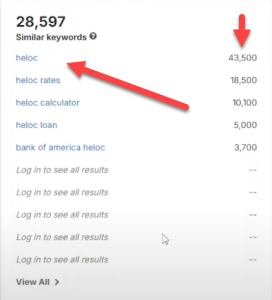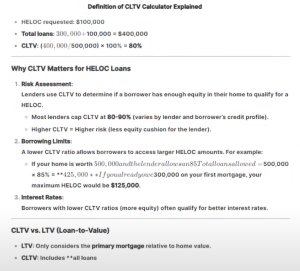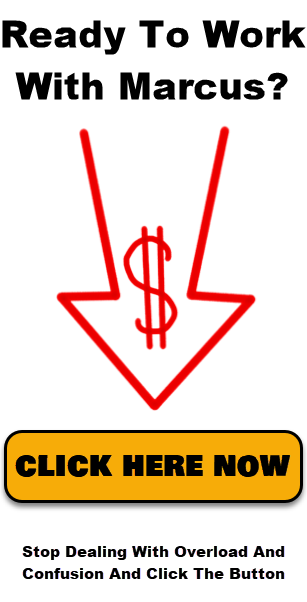Ai Glossary Websites = HUGE Profits
Learn how to create and monetize an AI-driven glossary website. Discover why it can outperform a regular directory and how to profit fast.
Have you noticed everyone talking about building directory websites lately. Only to find few people actually earning much from them? The primary challenge is monetization: a directory can attract traffic, but how do you turn visitors into revenue? In this post, we’ll explore why an AI-driven glossary website is often a better alternative and how it can produce significant income potentially in the thousands per month.
In this guide, I’ll show you how these types of sites can earn up to $220,000 or more in a month using the right strategy. The secret? Focusing on niche specific terms and definitions that people are desperate to understand. When your glossary provides clarity, you can earn higher ad payouts, attract lucrative affiliate deals, and even collect leads for long term profits.
Below, you’ll learn the exact steps to create a glossary site using AI tools like ChatGPT without needing any fancy coding or an English degree. We’ll cover how to pick your niche, structure your content, and drive targeted traffic from Pinterest and search engines. Let’s dive in.
Why an AI-Driven Glossary Outperforms a Directory
The Directory Dilemma
-
Excessive Competition
Directories usually focus on broad categories, restaurants in your city, local hotels, or general business listings. While that can yield initial traffic, you’ll be competing in a saturated landscape against bigger platforms like Yelp and Tripadvisor. Overcoming that stiff competition often requires large marketing budgets. -
Challenging Monetization
Even if you do rank for local businesses, monetizing a directory can be tricky. Many directory visitors aren’t ready to buy or click ads; they’re just looking for a phone number or address. Placing ads all over might disrupt the user experience and lower your site’s credibility, which hurts repeat visits. -
Sparse Content
Directory pages tend to be minimal: you have a listing with a name, address, phone number, and maybe a short description. This sparse information may not really engage users or satisfy search engine requirements for in depth content. As a result, getting your directory pages to rank well for long tail keywords can be an uphill battle.
The Glossary Advantage
-
Laser Focused Topics
A glossary website, by definition, revolves around meaningful, specific terms within a niche. People searching for these terms want clarity “What exactly is a HELOC?” or “How does dwelling coverage work?” When you answer these questions thoroughly, you naturally become a go to resource for deeper information. -
High Paying Niches
Many glossary worthy niches, like mortgages, insurance, legal, and specialized tech attract higher ad payouts. Advertisers in these fields may spend $15 to $20 (or more) per click. Compare that with a generic directory page that might only net you a few cents per click. -
AI-Enhanced Content Creation
With tools like ChatGPT and other AI platforms, writing up 50 to 100 definitions is far easier than manually building out a directory with thousands of local listings. You can focus on quality, insightful definitions, and user-friendly explanations all generated or assisted by AI. This not only speeds up the process but also helps you stand out from competitors using thin or recycled content. -
Authority Building
As you add comprehensive, well explained terms to your glossary, you begin to establish authority in your niche. A well structured glossary doesn’t just explain; it educates. This elevates your brand, encouraging visitors to trust your recommendations or buy the affiliate offers you promote.
How to Set Up Your AI-Driven Glossary Website
Step 1: Choose a High Paying Topic
Research the Niche
Your first step is to pick a niche with robust earning potential. Some proven areas include:
- Mortgage & Real Estate: Terms like Loan to Value (LTV), HELOC, or mortgage modification.
- Insurance & Legal: Think deductible, personal injury, or professional liability.
- Tech & Crypto: Definitions around blockchain, smart contracts, NFTs, or data recovery.
- Finance & Investing: Tax relief, 401(k) rollovers, ETF definitions, or market correction terms.

One approach is to use a free tool like Google Keyword Planner to see the approximate cost-per-click (CPC) advertisers pay for specific terms. Generally, if you see CPCs above $2–$3, you’re in a decent range. Some ultra competitive terms like “personal injury attorney” can go as high as $50 -$100 per click.
Picking a Domain
- Brandable vs. Exact Match: You don’t necessarily need a domain with “glossary” in it. Often a brandable domain like MortgageTerminologyPro.com or InsureClarity.com works just as well. Perhaps better for long term branding.



- Expired Domains: If you can find an expired domain with existing backlinks relevant to your niche, that’s even better. A small head start in domain authority can help you rank faster.
Step 2 : Generate Content With AI
Compile Your Terms
Brainstorm or AI-generate 50–100 essential definitions that people routinely search for in your field. For instance, a mortgage glossary might include:
- “HELOC” (Home Equity Line of Credit)
- “CLTV” (Combined Loan-to-Value Ratio)
- “Refinance”
- “Fixed vs. Adjustable Rate”

Use ChatGPT or Similar Tools
-
Draft Your Definitions
- Prompt ChatGPT: “Explain a HELOC as if you’re teaching a complete beginner. Include common misconceptions and use a friendly tone.”
- Do the same for each term. The key is to ensure each definition is unique enough to avoid plagiarism.
-
Go the Extra Mile
- Ask the AI to expand on “why this term matters,” “real world examples,” and “common mistakes.” This adds depth.
- Encourage “tips” or “FAQs” to keep the reader on your page longer improving SEO signals like dwell time.
-
Editing & Plagiarism Check
- Run your AI-generated text through a plagiarism checker (Grammarly or Copyscape) to confirm originality.
- Edit for clarity, grammar, and a consistent tone that matches your brand.
Formatting for SEO
- Headings and Subheadings: Use H2 and H3 tags for important sections.
- Short Paragraphs: Break up long text blocks for easier readability.
- Natural Keyword Placement: Insert your main keyword—e.g., AI-driven glossary website, plus niche specific terms like mortgage glossary or insurance glossary. Avoid keyword stuffing.
Internal Linking Strategy
As your glossary grows, interlink related terms. For example, if your “HELOC” definition mentions “refinance,” link to your refinance definition. This web of internal links boosts SEO and helps readers explore more terms organically.
Step 3: Add Monetization
Display Ads
- Ad Networks: Start with Google AdSense or a reputable alternative (Mediavine, Ezoic, etc.).
- Placement & Sizes: Commonly recommended units include 336×280 or 728×90. Insert them logically within your content, so it doesn’t disrupt the user experience.
Affiliate Marketing
- Relevant Offers: If you run a mortgage glossary, promote a mortgage calculator service or a home-loan comparison tool. For insurance, showcase quote comparison platforms.
- Pay Per Lead (PPL) Programs: Some industries, like legal or finance, offer pay per lead deals, often at higher rates than typical affiliate commissions. This can be especially profitable if you consistently draw serious prospects.
Sponsored Content
- Direct Sponsorships: Once your site gains traction, companies in your niche may pay you to review their tools or services.
- Webinars or Ebooks: Create specialized content, like a “First-Time Homeowner’s Guide” or “Crypto for Beginners” and offer it to advertisers interested in reaching your audience.
Lead Generation & Email Lists
- Capture Leads: Use an opt-in form inviting visitors to get a free PDF summarizing the top 10 terms in your niche.
- Follow Up Emails: Offer additional resources or affiliate deals via drip campaigns, turning visitors into potential customers over time.
Step 4: Drive Traffic (Including Pinterest)
Organic Search Engine Traffic
- Long-Tail Keywords: Each glossary term can target a specific long tail phrase like “What is combined loan to-value ratio?”
- Answer Users’ Questions: Think about what people really ask, such as “Does homeowners insurance cover water damage?” or “Is refinancing worth it in 2025?”
- On-Page SEO: Use descriptive meta tags, maintain fast page loading speed, and ensure mobile responsiveness.
Pinterest for Visual Traffic
While Google traffic is powerful, Pinterest can jumpstart growth:
- Pin Design: Create pins with eye-catching fonts and vibrant backgrounds. For each glossary term “HELOC,” for instance design a short, compelling title like: “Everything You Need to Know About HELOCs.”
- Link Back to Your Site: Make sure each pin directs to the specific glossary page, not just your homepage.
- Consistency: Post new pins regularly, track which designs or topics perform best, and pivot accordingly.
Other Social Channels
- YouTube: Repurpose your glossary content into short explainer videos. Even faceless videos with on screen text can drive clicks back to your site.
- Facebook Groups and Forums: In relevant groups (e.g., first-time home buyers, personal finance), share helpful glossary definitions when users have questions. Do not spam, offer real value.
Additional Tips and Best Practices
Address Common Pitfalls
- Quality Over Quantity: Don’t overload your site with hundreds of low quality definitions. Focus on 50–100 really helpful ones, and expand gradually.
- Avoid Keyword Stuffing: Yes, you want to rank for industry terms, but repeatedly jamming them in can harm your SEO.
- User Experience (UX) First: Over monetizing with too many ads can push users away. Keep a balanced layout that prioritizes readability.
Ethical and Legal Considerations
- Medical, Financial, or Legal Disclaimer: If your glossary covers mortgages, taxes, or insurance, include disclaimers that you are not offering official legal or financial advice.
- Affiliate Disclosure: Clearly state when links are affiliate or sponsored. In many regions, this is a legal requirement (e.g., FTC guidelines in the U.S.).
- Privacy Policy: If collecting emails, ensure you follow GDPR or other regional privacy laws.
Experiment and Optimize
- A/B Test Your CTAs: Vary your calls to action in your definitions to find which phrases encourage the most clicks.
- Track User Engagement: Tools like Google Analytics help you see which glossary terms get the most traffic and where users drop off. Expand on popular pages.
- Stay Updated in Your Niche: Terms in finance, tech, or insurance can change due to new regulations or market shifts. Keep definitions current to retain credibility.
An AI-driven glossary website capitalizes on user curiosity and the high value keywords they search for. While directory sites often struggle with monetization and competition, a glossary can laser focus on specific niche terms, helping you earn more per click and build domain authority over time. By using AI tools like ChatGPT, you can quickly generate unique, in depth content. This means less manual work for you and more accurate, user friendly definitions for your audience.
Whether you’re aiming for a few hundred dollars a month or aspiring to replicate the $220,000 monthly success featured in the original video transcript, a carefully crafted glossary site can be a serious earner. Pick a niche with big advertiser budgets, create content that solves real user problems, and diversify your traffic through both search engines and platforms like Pinterest or YouTube. Stay consistent, keep testing, and refine your approach as you go. Before long, you could find your AI-driven glossary website becoming a cornerstone of your online income.





2 Responses to Ai Glossary Websites = HUGE Profits